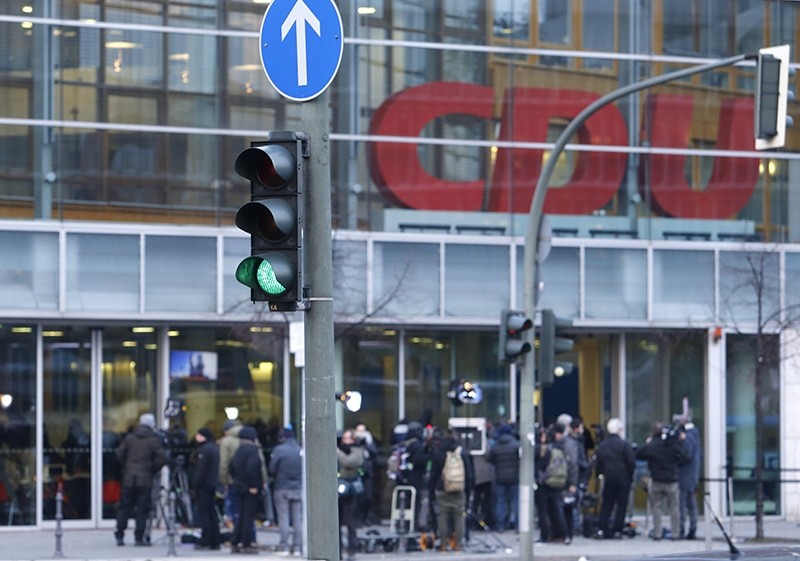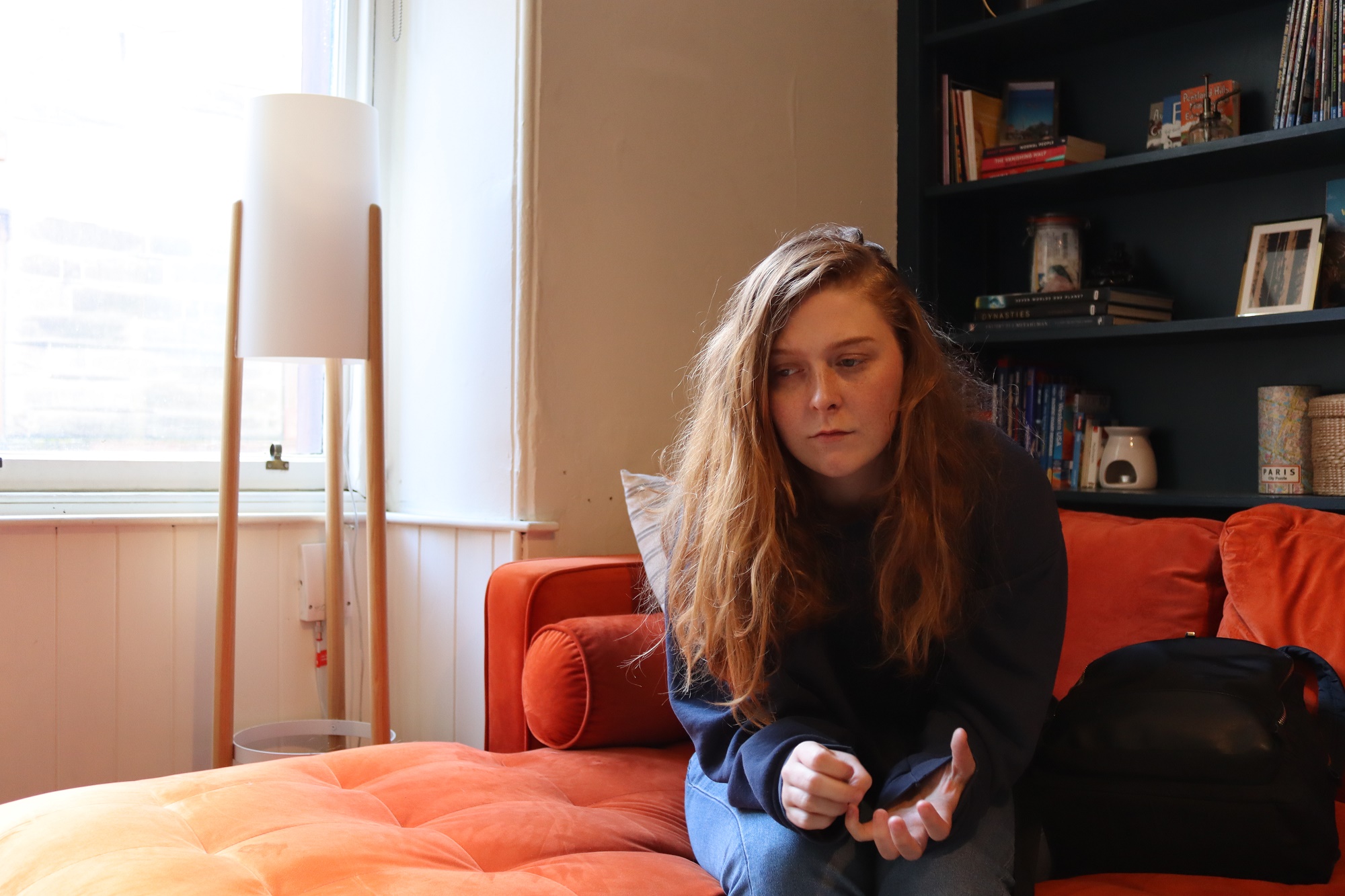Germany's SPD: Coalition Talks Amidst Growing Youth Protests

Table of Contents
The SPD's Stance on Key Policy Issues
The SPD's platform tackles several key policy areas crucial to Germany's future. Their official stance on climate change emphasizes a swift transition to renewable energy sources, aiming for climate neutrality by 2045. Economically, the party advocates for a balance between sustainable growth and social justice, aiming to create a more equitable society. This includes investing in green technologies while ensuring a just transition for workers in affected industries. On social justice, the SPD prioritizes initiatives to reduce youth unemployment and combat inequality.
How well do these policies align with the demands of youth climate activists? While the SPD's commitment to climate action is acknowledged, youth activists often argue that the proposed measures aren't ambitious enough, demanding faster and more radical changes.
- Specific climate policies proposed by the SPD: Phased-out of coal power, massive investment in renewable energy infrastructure, carbon pricing mechanisms.
- Economic measures designed to balance growth and sustainability: Green job creation programs, investment in sustainable infrastructure, support for green businesses.
- Social programs aimed at addressing youth unemployment and inequality: Apprenticeship programs, job training initiatives, increased social support for young people.
These policies, while progressive, face scrutiny from various quarters, highlighting the complexity of balancing competing priorities within the SPD Policy framework.
Youth Protests and Their Influence on Coalition Negotiations
Germany has witnessed a surge in youth-led climate protests, mirroring a global trend. Movements like FridaysForFuture have mobilized thousands, consistently demanding stronger climate action from the government. These protests have significantly impacted public opinion, forcing political parties to address climate change more seriously. The pressure on the SPD to integrate youth demands into the coalition agreement is immense. Failure to do so could result in a loss of public support, particularly amongst younger voters.
- Key demands of youth climate activists: Immediate and drastic reduction of greenhouse gas emissions, investment in renewable energies, a just transition for workers, climate education in schools.
- Examples of protest actions and their media coverage: Large-scale demonstrations in major cities, school strikes, civil disobedience actions, widely covered by national and international media.
- Public opinion polls reflecting youth concerns: Consistent polling data shows a significant majority of young Germans prioritizing climate action and expressing dissatisfaction with the government's response.
The scale and intensity of these Youth Climate Movement actions are undeniable and have significantly increased the political weight of Climate Activism in Germany.
Challenges for the SPD in Coalition Talks
Forming a stable coalition government presents significant challenges for the SPD. Potential coalition partners may have conflicting priorities, particularly regarding the speed and scale of climate action. Internal divisions within the SPD regarding the best approach to policy compromises further complicate the process. Balancing the needs of different factions and negotiating a comprehensive agreement that satisfies all partners requires significant political maneuvering.
- Potential coalition partners and their differing agendas: The Greens, often seen as more radical on climate change, and the FDP (Free Democratic Party), more focused on economic liberalization, represent contrasting viewpoints.
- Internal debates within the SPD on policy compromises: Balancing ambitious climate goals with economic concerns and concerns about social impacts represents an ongoing internal debate.
- Challenges in balancing competing interests within the coalition: Negotiating a coalition agreement requires considerable compromise and skillful diplomacy, with each party seeking to maximize their influence.
These Coalition Negotiations represent a significant test of the SPD's ability to navigate complex political dynamics and forge a cohesive governing coalition.
The Role of Media Coverage in Shaping Public Perception
Media coverage plays a crucial role in shaping public perception of both the coalition talks and the youth protests. The framing of the issues, the selection of voices quoted, and the emphasis placed on particular aspects can significantly influence public opinion. Potential biases in reporting, or selective focus on certain issues, could impact the SPD's political standing.
- Media Influence: The media's role in disseminating information and shaping narratives is undeniable, affecting both public support for the SPD and the youth climate movement.
- Media Bias: Concerns regarding potential bias or selective reporting need to be acknowledged, ensuring a balanced representation of diverse perspectives.
- Political Reporting: The accuracy and impartiality of political reporting are crucial in ensuring informed public discourse and facilitating meaningful political participation.
Conclusion: Germany's SPD and the Future of Coalition Governance in the Face of Youth Activism
The SPD faces a complex challenge: balancing its policy goals with the urgent demands of youth climate activists while navigating the intricacies of coalition talks. The outcome of these negotiations will significantly shape Germany's future direction on climate action and social policies. The long-term impact of youth activism on German politics is already evident and will likely continue to evolve, influencing political discourse and policy priorities for years to come. Staying informed about Germany's SPD's progress in coalition talks is crucial for understanding the evolving relationship between the party and youth climate movements. We encourage you to explore further resources on Germany’s SPD, Coalition negotiations, and youth climate activism to deepen your understanding of this important political moment.

Featured Posts
-
 Ryan Cooglers Potential X Files Series Anderson And Carters Involvement
May 01, 2025
Ryan Cooglers Potential X Files Series Anderson And Carters Involvement
May 01, 2025 -
 Vong Chung Ket Giai Bong Da Sinh Vien Cu Hich Manh Me Tu Tran Mo Man
May 01, 2025
Vong Chung Ket Giai Bong Da Sinh Vien Cu Hich Manh Me Tu Tran Mo Man
May 01, 2025 -
 Remember Monday The Uks Eurovision 2025 Hopefuls
May 01, 2025
Remember Monday The Uks Eurovision 2025 Hopefuls
May 01, 2025 -
 The Spd And The New German Coalition A Change In Dynamics
May 01, 2025
The Spd And The New German Coalition A Change In Dynamics
May 01, 2025 -
 Kad Sam Se Vratio Istina O Zdravkovoj Prvoj Ljubavi I Njenom Braku
May 01, 2025
Kad Sam Se Vratio Istina O Zdravkovoj Prvoj Ljubavi I Njenom Braku
May 01, 2025
Latest Posts
-
 Scottish Homelessness Campaign Receives Royal Backing Prince William And Gail Porter Unite
May 01, 2025
Scottish Homelessness Campaign Receives Royal Backing Prince William And Gail Porter Unite
May 01, 2025 -
 Prince Williams Scottish Homelessness Initiative A Warm Embrace And A Powerful Partnership
May 01, 2025
Prince Williams Scottish Homelessness Initiative A Warm Embrace And A Powerful Partnership
May 01, 2025 -
 Prince William And Gail Porter A Royal Friendship Combats Homelessness In Scotland
May 01, 2025
Prince William And Gail Porter A Royal Friendship Combats Homelessness In Scotland
May 01, 2025 -
 Four Investors Bite On Little Coffees Dragons Den Pitch
May 01, 2025
Four Investors Bite On Little Coffees Dragons Den Pitch
May 01, 2025 -
 Dragons Den Backs Omnis Plant Based Dog Food Brand A New Era In Pet Nutrition
May 01, 2025
Dragons Den Backs Omnis Plant Based Dog Food Brand A New Era In Pet Nutrition
May 01, 2025
